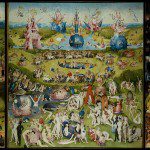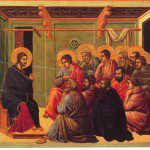Now for the bad news. The popes have, on multiple occasions, condemned Liberalism in its various forms. Take, for example, Pius XI’s notorious Syllabus of Errors:
ERRORS ABOUT CIVIL SOCIETY, CONSIDERED BOTH IN ITSELF AND IN ITS RELATION TO THE CHURCH
45. The entire government of public schools in which the youth- of a Christian state is educated, except (to a certain extent) in the case of episcopal seminaries, may and ought to appertain to the civil power, and belong to it so far that no other authority whatsoever shall be recognized as having any right to interfere in the discipline of the schools, the arrangement of the studies, the conferring of degrees, in the choice or approval of the teachers.—Allocutions “Quibus luctuosissimis,” Sept. 5, 1851, and “In consistoriali,” Nov. 1, 1850.
[…]
47. The best theory of civil society requires that popular schools open to children of every class of the people, and, generally, all public institutes intended for instruction in letters and philosophical sciences and for carrying on the education of youth, should be freed from all ecclesiastical authority, control and interference, and should be fully subjected to the civil and political power at the pleasure of the rulers, and according to the standard of the prevalent opinions of the age.—Epistle to the Archbishop of Freiburg, “Cum non sine,” July 14, 1864.
48. Catholics may approve of the system of educating youth unconnected with Catholic faith and the power of the Church, and which regards the knowledge of merely natural things, and only, or at least primarily, the ends of earthly social life.—Ibid.
[…]
VII. ERRORS CONCERNING NATURAL AND CHRISTIAN ETHICS
57. The science of philosophical things and morals and also civil laws may and ought to keep aloof from divine and ecclesiastical authority.—Ibid
58. It is lawful to refuse obedience to legitimate princes, and even to rebel against them.—Encyclical “Qui pluribus,” Nov. 9, 1864; Allocution “Quibusque vestrum,” Oct. 4, 1847; “Noscitis et Nobiscum,” Dec. 8, 1849; Apostolic Letter “Cum Catholica.”
[…]
ERRORS HAVING REFERENCE TO MODERN LIBERALISM
77. In the present day it is no longer expedient that the Catholic religion should be held as the only religion of the State, to the exclusion of all other forms of worship.—Allocution “Nemo vestrum,” July 26, 1855.
78. Hence it has been wisely decided by law, in some Catholic countries, that persons coming to reside therein shall enjoy the public exercise of their own peculiar worship.—Allocution “Acerbissimum,” Sept. 27, 1852.
79. Moreover, it is false that the civil liberty of every form of worship, and the full power, given to all, of overtly and publicly manifesting any opinions whatsoever and thoughts, conduce more easily to corrupt the morals and minds of the people, and to propagate the pest of indifferentism.—Allocution “Nunquam fore,” Dec. 15, 1856.
Here we have attacks on any number of assumed “Liberal” freedoms: freedom of the press (which is intimately related to freedom of speech), freedom of religion, freedom to send children to non-religious schools, etc. Leo XIII was not much kinder to Liberalism in his encyclical Libertas:
There are others, somewhat more moderate though not more consistent, who affirm that the morality of individuals is to be guided by the divine law, but not the morality of the State, for that in public affairs the commands of God may be passed over, and may be entirely disregarded in the framing of laws. Hence follows the fatal theory of the need of separation between Church and State. But the absurdity of such a position is manifest. Nature herself proclaims the necessity of the State providing means and opportunities whereby the community may be enabled to live properly, that is to say, according to the laws of God. For, since God is the source of all goodness and justice, it is absolutely ridiculous that the State should pay no attention to these laws or render them abortive by contrary enact menu. Besides, those who are in authority owe it to the commonwealth not only to provide for its external well-being and the conveniences of life, but still more to consult the welfare of men’s souls in the wisdom of their legislation. But, for the increase of such benefits, nothing more suitable can be conceived than the laws which have God for their author; and, therefore, they who in their government of the State take no account of these laws abuse political power by causing it to deviate from its proper end and from what nature itself prescribes. And, what is still more important, and what We have more than once pointed out, although the civil authority has not the same proximate end as the spiritual, nor proceeds on the same lines, nevertheless in the exercise of their separate powers they must occasionally meet. For their subjects are the same, and not infrequently they deal with the same objects, though in different ways. Whenever this occurs, since a state of conflict is absurd and manifestly repugnant to the most wise ordinance of God, there must necessarily exist some order or mode of procedure to remove the occasions of difference and contention, and to secure harmony in all things. This harmony has been not inaptly compared to that which exists between the body and the soul for the well-being of both one and the other, the separation of which brings irremediable harm to the body, since it extinguishes its very life.
Leo wrote a letter on Americanism as well, signaling his particular fear that our nation was a hub for Liberalism (given the American Founding, this makes a good deal of sense). In 1832, Pope Gregory XVI was not much kinder to Liberal ideas:
14. This shameful font of indifferentism gives rise to that absurd and erroneous proposition which claims that liberty of conscience must be maintained for everyone. It spreads ruin in sacred and civil affairs, though some repeat over and over again with the greatest impudence that some advantage accrues to religion from it. “But the death of the soul is worse than freedom of error,” as Augustine was wont to say.[21] When all restraints are removed by which men are kept on the narrow path of truth, their nature, which is already inclined to evil, propels them to ruin. Then truly “the bottomless pit”[22] is open from which John saw smoke ascending which obscured the sun, and out of which locusts flew forth to devastate the earth. Thence comes transformation of minds, corruption of youths, contempt of sacred things and holy laws — in other words, a pestilence more deadly to the state than any other. Experience shows, even from earliest times, that cities renowned for wealth, dominion, and glory perished as a result of this single evil, namely immoderate freedom of opinion, license of free speech, and desire for novelty.
15. Here We must include that harmful and never sufficiently denounced freedom to publish any writings whatever and disseminate them to the people, which some dare to demand and promote with so great a clamor. We are horrified to see what monstrous doctrines and prodigious errors are disseminated far and wide in countless books, pamphlets, and other writings which, though small in weight, are very great in malice. We are in tears at the abuse which proceeds from them over the face of the earth. Some are so carried away that they contentiously assert that the flock of errors arising from them is sufficiently compensated by the publication of some book which defends religion and truth. Every law condemns deliberately doing evil simply because there is some hope that good may result. Is there any sane man who would say poison ought to be distributed, sold publicly, stored, and even drunk because some antidote is available and those who use it may be snatched from death again and again?
I could go on and on, but the point is, I hope, clear: lots of ideas that American Catholics take for granted today were virulently opposed by previous popes (or so it seems). Why do you think JFK had to assure the nation he wouldn’t merely by a papal puppet if elected president?
Why bring this up at all though? Do I merely delight in making American conservatives (and “small-l” liberals) squirm? Not in the least. In fact, I find this difficult to write, because I know it will make people uncomfortable, perhaps even rile them to anger. I bring this up, because, for those of us who find Marx relevant and worthy of our time, for those of us who are often said to exist on the political Left, it is far too common to be told that the popes have condemned socialism.
I have addressed this question before, and it’s not quite true. For the full account, please see the previous hyperlink. But to summarize: the word “socialism” encompasses many different movements (not just Marxist Communism, not just the USSR, etc.), and the popes were referring to very specific types and forms in their condemnations. This relates to Liberalism, because there are obviously derivatives of Liberalism now accepted, if not endorsed by the Church (Dignitas humanae provides some good examples).
If we accept that the Church cannot err (and I do), then there must be some distinction to be made between the freedoms advocated in later Ecclesial documents and those condemned earlier. I am fine with saying that (I think there are still forms of Liberalism expressly condemned by the Church, just as I think there are socialisms condemned by the Church). In other words, if you accept that when the popes say “Liberal” or “freedom of religion” in certain documents that they don’t mean those terms the way you mean them today, you ought, in principle, admit that when they condemned “socialism” they did not condemn every possible form of socialism. In short, words can have many meanings, and making sense of that reality is key for prudential politics and meaningful debate.
This has thus been an exercise in logic, not in content per se. I have my reasons for believing that the Church’s perspective shifted (though teaching was not changed), but those will have to wait (I have already gone on more than long enough). Suffice it to say that I invite my “Liberal” brothers and sisters (both center-left and center-right) to reflect on what has actually been condemned, to meditate on the idea that, perhaps, now it is time to recognize that those of us with other political commitments do not stand outside the Church, but instead seek to offer (even if not ourselves socialists) alternative, acceptable answers in line with orthodoxy.

















